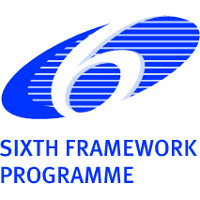European Court of Auditors assesses success of two important FP6 instruments
Networks of Excellence (NoEs) and Integrated Projects (IPs) under the Sixth Framework Programme (FP6) have succeeded in promoting effective research collaborations. This is one of the results of a special report by the European Court of Auditors (ECA) assessing the two instruments for research funding, newly introduced under FP6. In order to further increase the impact of EU funds, the ECA believes it necessary to set up performance indicators that would facilitate monitoring and evaluation. The European Commission agrees on the necessity of a sound intervention logic and emphasises that such a logic has always been part of all its Framework Programmes (FPs). 'Under FP7 [the Seventh Framework Programme], [...] all work programmes contain expected impact statements, which correspond with the objectives, rationale and activities set out in the Specific Programmes,' the Commission's reply to the report reads. 'This will further strengthen the evaluation and monitoring system.' The Commission adds that under FP7, research goals and objectives, too, are set out in the work programmes, and the scientific goals and scope of activities clearly defined. Following its own evaluation, the Commission also agrees with the ECA's suggestion that the continued financing of specific NoEs under FP7 should be decided on a case-by-case basis, depending on past achievements, potential added value and prospects of self-sustainability. While some NoEs have been less successful than others, several have reached self-sustained integration as intended, the Commission emphasises. The Commission also acknowledges the ECA's findings on low levels of FP6 participation from the private sector and research investments from participants, but points out that participation rates were similar to those under the Fifth Framework Programme (FP5). 'The Commission is constantly examining the research landscape, monitors the national R&D policies and is actively engaged in the endeavours to further research investments through, not least, the open method of coordination,' the reply reads. In a fourth and last point, the Commission once again agrees with the ECA that project management is essential for projects' success and 'clear and timely guidance, a speedier contracting process and better project monitoring are very important elements for the implementation of a European FP for research'. While the ECA criticises an increasingly lengthy negotiation process and occasional lack of guidance, the Commission concludes that 'the large number of projects under the new instruments, which points to the involvement of thousands of participants in them, as well as the overall good results that we registered for them, shows that any shortcomings have not been important for the overall use of the IPs and the NoEs.' Traditional funding instruments prior to FP6 included Specific Targeted Research Projects (STREPs), Coordination Actions (CAs), Specific Support Actions (SSAs), Marie Curie Actions, Integrated Infrastructure Initiatives (I3s) and Article 169 Actions. Under FP6, NoEs and IPs were added to the toolbox. The specific aim of NoEs was to create a substantial and lasting integration of the research activities of the network partners, while IPs were more concretely designed to generate knowledge related to FP6 thematic priorities.



